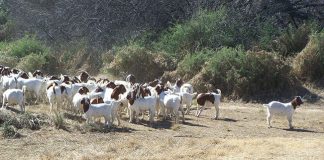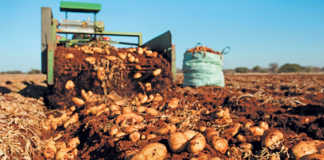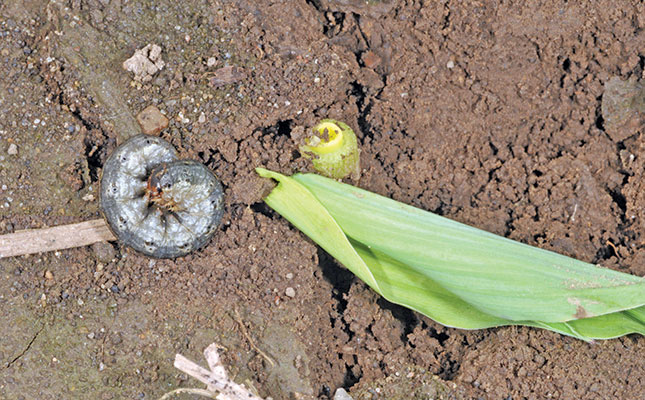
The Bravocado is a pack of three avocados at different stages of ripeness: one ready to eat today, one ready in a day or two and another at the end of the week.
Here we have packaging creativity from Chinese importer-distributor Shanghai Supafresh at its best.
While the marketing brilliance comes from China, the technology to grade avocados into different stages of ripeness originates with the 125-year-old Lowveld farming business HL Hall & Sons.
In the late 1980s, the company realised that if avocados were to become a fruit of the future, they would need to be bought ‘ready-to-eat’, like most other fruit. If this could be done, it would change the future of the industry.
Managing director, Rob Snaddon, found and developed a way of doing this, and with the world’s leading retailers now offering ripe-and-ready avocados, sales are soaring.
Shanghai Superfresh’s Bravocado pack uses the technology to sort the fruit by stage of ripeness and has taken the ripe-and-ready concept to another level entirely. But it all started when a farmer identified the need for ready-to-eat avocados.
A focus on marketing
In the 1970s, Len Hobson, an enterprising Tzaneen farmer, travelled to Hawaii. He returned with papaya seeds, which he planted on his farm. At the time, papaya was unknown in South Africa, with consumers buying the ‘cousin’ of the papaya, the pawpaw, instead.
The papayas Hobson produced were beautiful, sweet and delicious, but because consumers were only familiar with the bland, giant pawpaw, Hobson initially had trouble selling his fruit.
He wasn’t put off, however. He cleverly marketed the fruit under the brand Papino, individually wrapping and packing each fruit. He also placed a small recipe leaflet in each carton, and visited retailers with samples.
This was at a time when farmers were disposing of their pawpaws in plain cardboard boxes at municipal markets, and the Papino eventually became a household name. The insipid pawpaw was all but forgotten.
Have you heard of the Illuminati II range of fabrics? When a Danish fashion designer saw a gap in the market for high-quality luxury cotton fabric produced in an environmentally and socially responsible manner, his search led him to Uganda.
Here, he met South African Bruce Robertson, who had founded the Gulu Agricultural Development Company and worked to rebuild the country’s cotton industry.
With a secure supply of high-quality Ugandan cotton produced according to organic and fair trade principles, the Danes developed a range of fabrics which they branded ‘Illuminati II’.
At a time when cotton was associated with exploitation of labour and the environment, they marketed Illuminati as ‘the brand with a conscience’.
These examples prove that while farmers are driven by production, and judge themselves by yields per hectare, hectares planted and percentage of Class 1, they should not leave the marketing to others.
Growing your business through innovative marketing
It was Rob Snaddon’s interest in the market that sparked his search for a way to sort avocados by stage of ripeness.
It was Len Hobson who gave us the small sweet pawpaw that graces many a dining table these days, and it was Bruce Robertson who, with his Danish partners, made it possible for small-scale Ugandan farmers to make a good living out of cotton farming.
Marketing is too important to leave to others. It’s your job as a farmer to find unique ways of adding value to your products to drive up profits and grow the business.
Source: fruitnet.com.











